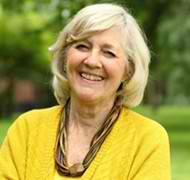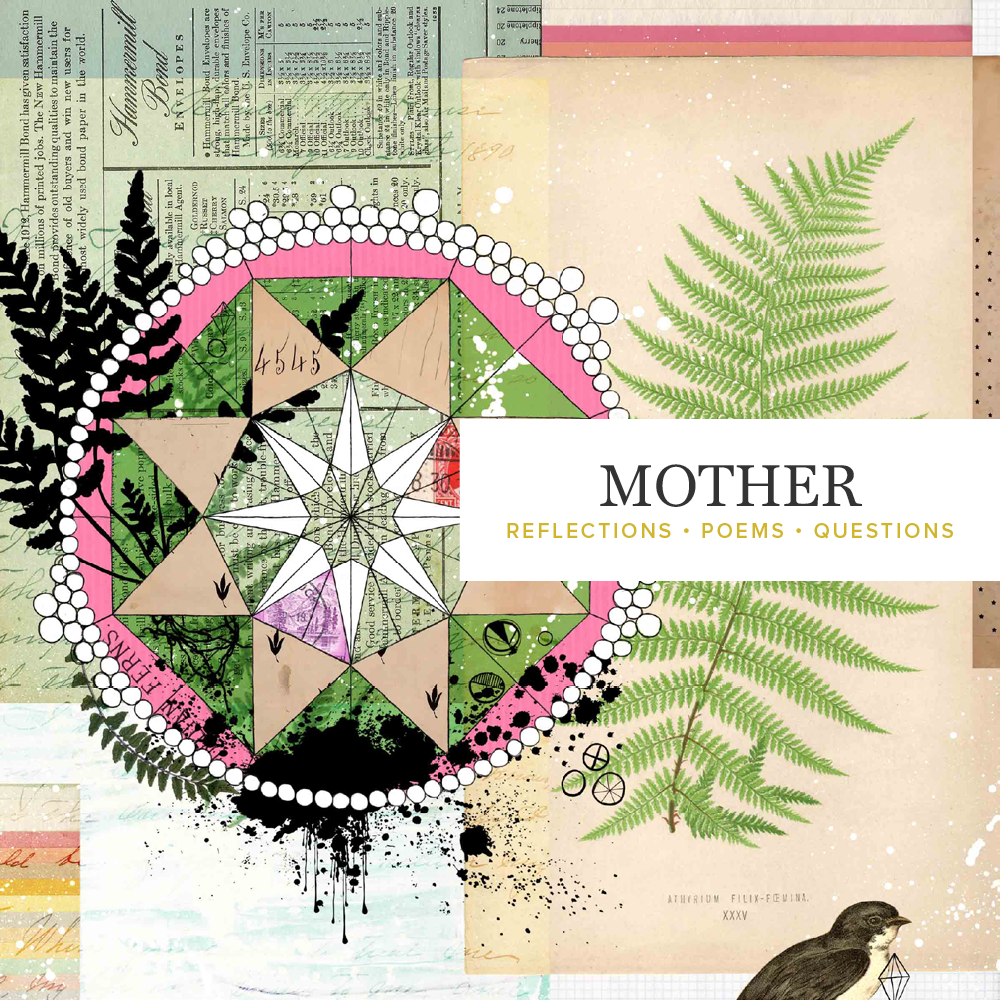Here’s Part 2 of my chat with Pullitzer prize-winning columnist Ellen Goodman. (Read Part 1 here).
TARA: Let’s talk more about social change because you’ve both written about it and taken time to study it. I’m curious about what your understanding is of how social change happens and how that is informing how you have created and structured The Conversation Project.
ELLEN: I think that probably the most powerful engine of change is when people discover what they already know. If that sounds paradoxical it’s not really. It’s when suddenly it becomes clear what would have known at some level; it’s what you’ve long known was screwed up. You learn it again. It’s articulated in different ways. It’s shared in a different way.
My generation went through a lot — we were the change agents of our culture with the women’s movement. There was the Civil Rights movement. There was the women’s movement. There was the gay rights movement. Now, we’re facing what you could only think of as the longevity revolution. We are living longer lives. That’s the good news. Along with all the exhortations — like 50 is the new 40 — there is the reality that 50 is the new caregiver of the 75 year olds; 60 is the new caregiver of the 85 year old.
Along with technological and medical changes that have allowed us to live longer, this revolution has also meant that end-of-life now comes with a series of decisions that have to be made by you and the people who you love. Sometimes the decisions need to be made by you for the people you love. For a long time people were holding the stories of this inside their own hearts…People were holding those stories.
There are a huge number of stories of people who have been through hard deaths or good deaths. At some level, the difference between those good deaths and those hard deaths is whether people have shared their wishes for their end of life and whether those wishes were respected.
We founded The Conversation Project on the basis of storytelling. We want to make it easier for everybody going through this from now on, because we know that if there is one thing that everybody in this wide diverse and sometimes contentious world shares, it’s their mortality. That is something that all of us will go through with the people we love and then ultimately with ourselves.
TARA: What was the seed of inspiration for this project for you?
ELLEN: For me it was a story. It was a story of my mother’s death and the long period preceding her death, when my mother was no longer able to decide for herself what she wanted for lunch let alone what she wanted for healthcare. I was faced with a huge number of cascading decisions to be made for which I felt totally blindsided and unprepared. Nobody said I would have to make these decisions for my mother. Yet, it became clear that I was the designated daughter. When my mother died, I began to talk to other people which is what do women do. We form a group.
I formed a group with men and women — some medical people, some clergy, some media people, social worker. The first thing that our small group did when we came together was to take off our professional hats and talk and tell our stories. That was a very powerful beginning. Gradually, from there, we moved to create a national campaign, a public engagement campaign to help make it easier for all Americans to have their wishes expressed and respected.
TARA: I’m really fascinated by that taking off of professional hats and returning to stories. One of the places women get so stuck in playing bigger is thinking that they need to have a lot of deep formal expertise or degrees or professional experience in something in order to make change around it, when in fact for many women their most powerful questions, decisions, ideas are coming much more from their lived experience.
ELLEN: I think that’s right. I think in this case people assumed that end-of-life choices were enhanced at the medical profession and that in fact doctors would begin those conversations at least but often make those choices. In fact that medical professionals are often reluctant and uneasy having these conversations.
We’ve discovered that for example in Massachusetts only 17% of people have had end-of-life conversations with their doctors and in California only 7% have had these. We also know that people are not dying in the way they would choose. 70% of people say in surveys that they would like to die at home surrounded by their loved ones but 70% of people are dying in hospitals and institutions.
Dying at home isn’t necessarily about a geographic location. It’s an idea. It’s a sense of comfort surrounded by people who care about you. We said, “Yes this change has to come from the outside in. It comes from known experiences that you are the expert on you. You are the expert on your family. You know what happened to your parents, to your siblings and that you have to bring this change into the system.”
The model is similar to how women changed birth a generation ago. The doctors weren’t the ones that said, “Oh, yes please. Bring the video camera into the birthing room. Let’s have babies in a bathtub. Don’t put your feet in the stirrup. Let’s have a warm and engaging lovely event.” It was basically parents, especially women, who said, “This is what’s right. The experience that I had giving birth shouldn’t be that way.” They’re the ones who changed the system from the outside in.
We think the same thing is happening with the end of life experience.
TARA: That’s such a beautiful articulation of one type of playing big, of seeing yourself and your other fellow citizens as worthy of introducing changes into a system that’s not working. I would love to hear more about your own playing big in. Many women would look at your bio and think she hasn’t had any issues playing big! Do you struggle with self-doubt? Do you struggle with a voice of “Who do you think you are?”
ELLEN: Show me somebody who doesn’t have self-doubt and I’ll show you somebody who’s faking it — serious repression or either narcissism or something. There’s probably some sort of a disease for people who don’t have self-doubt. Everybody does — particularly if you’re trying to express and articulate issues of the time…
At the same time, I think the courage of your convictions which you have to have if you’re writing on issues of the day is something that’s learned. It’s like everything else. I think there is probably far too little attention paid to adult learning than there should be and far too much belief that “people are just made that way.” I would say that I learned how to do a lot of it by doing.
TARA: What advice would you give to a woman who has the sense that she’s playing small and who wants to play bigger?
ELLEN: I often think of Eleanor Roosevelt’s wonderful line of “Everyday do something you fear.” You want an example of somebody who went from playing small to playing big! She was a woman who was very shy and fearful. Teach yourself by taking risks. Always say, “What’s the worst thing that can happen? If I speak up for myself, what’s the worst thing that can happen?” A lot of what life is about is speaking up for yourself. You’re only going to ostracize the people you don’t want to play with anyway.
TARA: I call this going for the gasp — doing the things that actually make you gasp a little like, to get your adrenaline flowing.
ELLEN: Short of burlesque. Short of posing something on Facebook that you will regret the rest of your life.
TARA: Yes – not any gasp but the gasp that furthers your own playing big in the world.
ELLEN: Exactly. Something that matters to you. I moved from observing social change to trying to enact social change through The Conversation Project really because I thought, “What matters?”
What mattered to me was that people’s end-of-life wishes would be expressed and respected. We can have a much more humane way of dying than we do right now.
On our website, we have a starter kit, a guide, that makes it easy for people to have the conversation with their loved ones.
A lot of people think, oh my God, they’re not going to want to hear this. We give a lot of ways to start the conversation in a way that people can listen. We know from the experiences people share that these conversations are some of the richest ones that people in the family have ever had. They have been tremendously rewarding.
TARA: Thank you Ellen so much for joining us and for sharing your wisdom and for spreading the word about the conversation project and for bringing that into the world.
ELLEN: Thank you Tara for doing this. I appreciate it very much. You are doing great work in the world.
Thanks for reading Part 2. To learn more about The Conversation Project, click here.
Listen to Tara and Ellen Goodman’s conversation via audio here
Download as Mp3 Interview with Ellen Goodman






Loved reading this follow-up. I really appreciate how Ellen brings social change back to us and our lives — this is the root of it all, for sure.
I’m also so grateful for the work she’s doing with The Conversation Project. When my dad died last year, we had to make some hard decisions — but what made them less hard is that we’d talked about what he wanted so many times that none of us had any doubt. That is such a gift in a painful time. I’m sure Ellen’s good work will help many other families have a similar experience
Tara ~ you inspire me to do stuff that I have been avoiding. The Conversation Project is just the beginning. It feels like the door to my soul has opened a crack and i am curious to creak it open a little more each day for the light to spill from my mind and body. Thank you.
Awakened in Ca ~ Annie